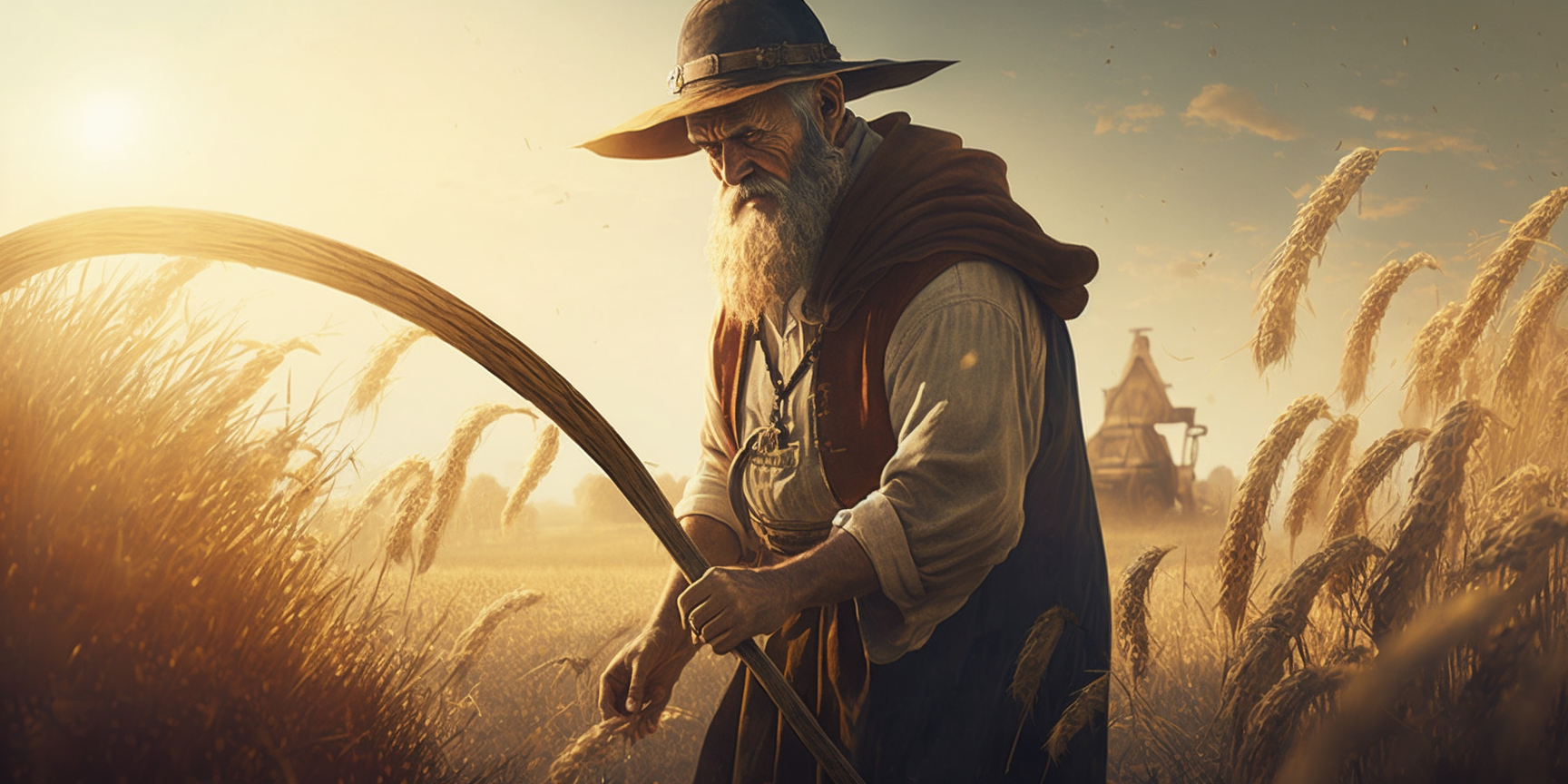Serfdom
Serfdom is the status of many peasants under manorialism. Under serfdom, the serf was under hereditary indentured servitude, and bound to the land. That meant that in reality a serf was always working to repay an impossible to repay debt to the lord and that during his service, him, and all his family could not leave the land they were a part of.
Unlike slaves, serfs could not be bought, sold, or traded individually though they could, depending on the area, be sold together with land.
A serf had to pay part of his debt by working the land of the lord. Serfs also had to pay taxes in the form of grain, produce, livestock or coin. Serfs would pay another part of their grain to the Lord's mill in order to mill their grains and another part to the Christian church in the form of a tithe.
The system was designed so a serf would almost certainly stay in debt for his whole life, never making any surplus, and in fact, in many cases relying on the church to supplement their own food stores in the form of alms.
If a serf was unable to pay their debt or taxes for any reason the debt would be added to the original amount and they could have their alloted land become smaller or take a worst quality parcel during the next growing season.
Serfs owned very little and the oxen and horse gangs used to push the ard or heavy plough were owned by the manor and in some cases the serf had to pay fees to use them, although that was rare.
If an unfree villein allows his daughter into a marriage with a man from another manor, a fine must be paid to the lord as a fee for the lost of future villeins that could have been borne by the woman.
When a serf died, their first born son had to ask the lord allow them to continue to repay their debt, and in order to do that the passed away serf's son had to gift to the lord of the manor, in most cases, the best of their animals, in most cases a pig.
Each serf had to contribute, himself and his family for give or take 2 days a week to the service of their lord. Most lords used this time to sow, till and harvest their fields. Some of the women would work in the manor or the stables.
Serfs during war

If lucky, some of the young serfs could be selected for the Lord's retinue. The retinue of a lord was in most cases between 5 to 15 peasants armed with simple weapons, that followed them and served them when the lord was called to war by their lord. War being as it may, a very dangerous ordeal, it was also providing the serfs with the chance to distinguish themselves, and gain.wealth in the form of loot, honor and potentially their freedom - which would mean become freemen in the manor, giving them their own land and releasing them from their bond to the land.
Hierarchy within serfdom
Feudalism was based on strict and rigid social structures. It person in the realm belonged in a class, and in many cases those classes also had sub-classes. In the case of serfdom, A serf was granted a garden for growing trees and vegetables and had access to the village green to feed their lifestock and the lord's forests to feed their pigs with acorns. Bordars (or cottars) were even lower than serfs and had hardly enough land to feed their family
A serf could grow what crop he saw fit on his lands, although a serf's taxes often had to be paid in wheat. The surplus he would sell at market.
In England when the Doomsdays book of William the Conqueror was written the country had 12% freeholders, 35% serfs or villeins, 30% cotters and bordars, and 9% slaves
For all its flaws serfdom and manorialism were systems to that tried to bring the world into some world of an organised structure, and possibly one of the reasons they have succedded was the incredible self-sufficiency achieved by The Manor that the serfs lived and, in most cases died in.



At one stage roughly the time of the 100 Years War, football was banned in England & Wales on Sundays, so the Serfs could use the time to practice archery instead. Also, many would happily go to war too. Allowed them to make a bit of coin or get other war booty, excluding the fact if they showed any promise as a fighting man, the noble he's indentured to could take him into his personal retinue too.
Absolutely, by the way do you know that the training the longbow law was never abolished? It's still there just not enforced :)
World Anvil Founder & Chief Grease Monkey
Twitter | World Anvil Changelog
“No act of kindness, no matter how small, is ever wasted.” - Aesop
Didn't know that bit about it still being on the books. Learn something every day.